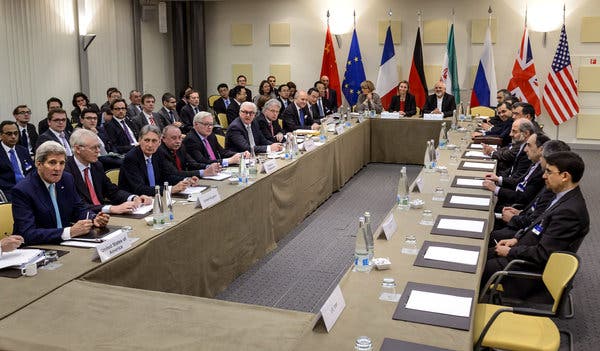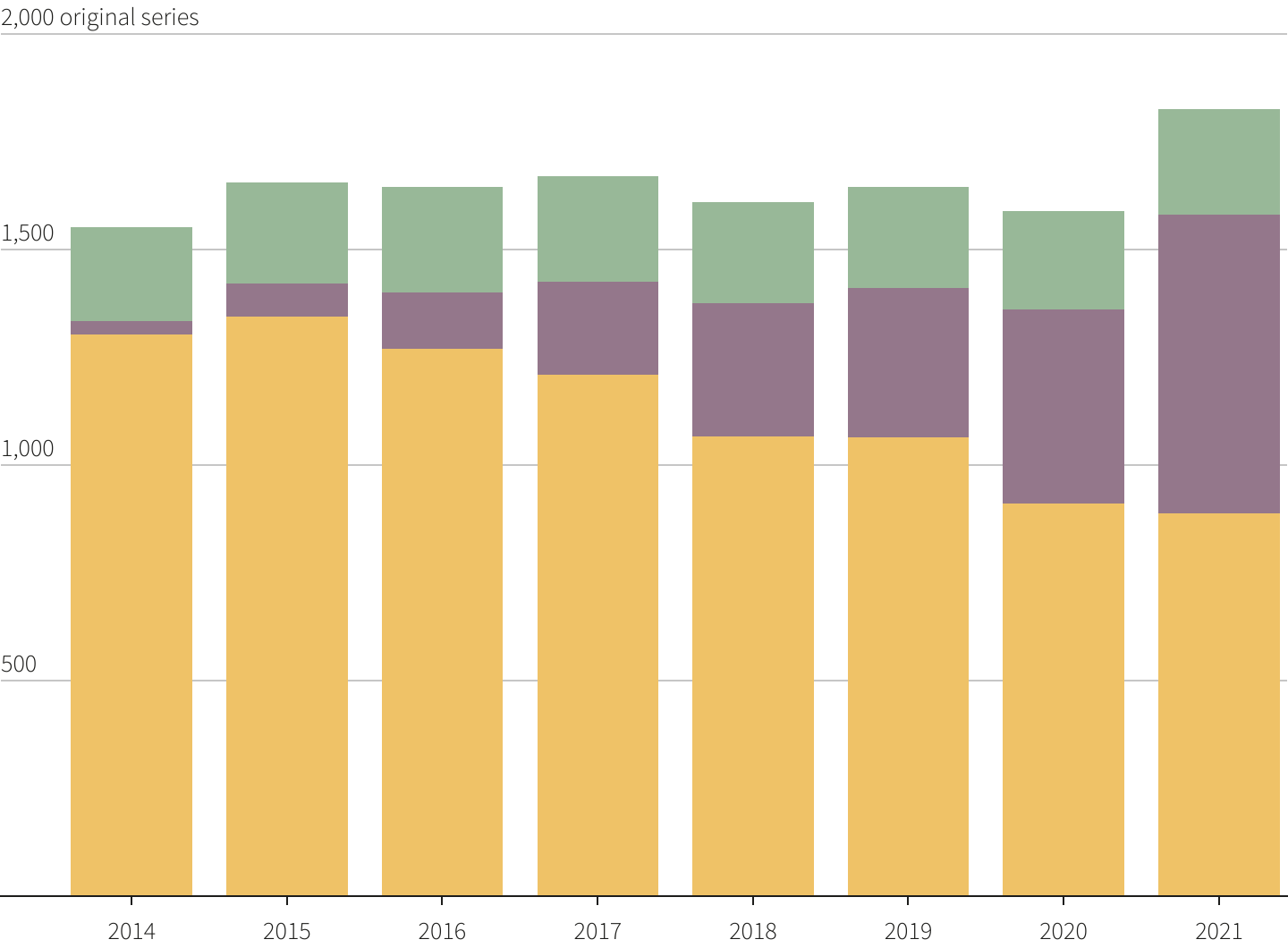U.S. And Iran Fail To Reach Agreement In Nuclear Talks

Table of Contents
Key Sticking Points in the U.S.-Iran Nuclear Negotiations
The collapse of the U.S.-Iran nuclear talks can be attributed to several key disagreements that proved insurmountable during the recent negotiations. These sticking points highlight the deep divisions and entrenched positions that continue to hinder progress towards a comprehensive agreement.
Sanctions Relief
Iran's demand for significant sanctions relief has been a major stumbling block throughout the negotiations. Tehran insists on the lifting of crippling economic sanctions imposed by the United States and its allies as a precondition for returning to full compliance with the 2015 nuclear deal, formally known as the Joint Comprehensive Plan of Action (JCPOA).
- Specific Sanctions: Iran demands the removal of sanctions targeting its oil exports, banking sector, and crucial industries.
- U.S. Position: The U.S. has expressed a willingness to offer some sanctions relief, but insists on verification mechanisms to ensure Iran's adherence to the agreement. This includes rigorous IAEA inspections.
- Implementation Complexities: The phased approach to sanctions lifting and the complexities of verification and implementation have proven difficult to reconcile. Concerns remain about Iran's ability to use sanctions relief to fund its ballistic missile program and support regional proxies. The potential for sanctions snapback also presents a challenge.
Nuclear Enrichment Levels
Disagreements over Iran's uranium enrichment levels constitute another significant hurdle. The level of enrichment is directly linked to the potential for Iran to develop nuclear weapons.
- Current Enrichment Levels: Iran's enrichment levels have steadily increased in recent years, exceeding the limits set by the JCPOA.
- Iran's Justification: Iran argues that its enrichment program is for peaceful purposes, necessary for its civilian nuclear energy needs.
- International Concerns: The U.S. and other world powers fear that higher enrichment levels bring Iran closer to acquiring a nuclear weapon, raising serious security concerns. The international community remains deeply worried about the implications of unchecked enrichment for regional and global security. The speed at which Iran can enrich uranium is also a point of major contention.
International Atomic Energy Agency (IAEA) Investigations
Outstanding IAEA investigations into Iran's past nuclear activities have further complicated the negotiations. Resolving these investigations is crucial for rebuilding trust and ensuring transparency.
- Nature of Investigations: The IAEA investigations focus on unexplained traces of enriched uranium found at undeclared sites in Iran.
- Iran's Response: Iran has been reluctant to fully cooperate with the IAEA investigations, hindering progress towards a resolution.
- Importance of Resolution: Transparency and accountability are paramount. Resolving these outstanding issues is vital for establishing trust and ensuring that Iran's nuclear program remains exclusively peaceful. Failure to address these concerns undermines confidence in future compliance.
Reactions and International Implications of the Failed Talks
The failure of the U.S.-Iran nuclear talks has triggered a range of reactions from various actors and significantly impacts global stability.
U.S. Response
The Biden administration has expressed disappointment over the outcome of the talks, emphasizing its commitment to preventing Iran from acquiring nuclear weapons.
- Official Statements: The U.S. has reiterated its preference for a diplomatic solution, while also leaving open the possibility of other actions, including further sanctions or military options.
- Future Strategies: The U.S. is likely to explore other avenues to address the Iranian nuclear threat, possibly through enhanced cooperation with regional allies and increased diplomatic pressure. There are ongoing discussions about a potential return to the JCPOA framework, although this remains highly uncertain given current circumstances.
- Regional Consequences: The failed talks could exacerbate tensions in the Middle East, prompting increased regional arms races and raising the risks of conflict.
International Community Response
The international community has expressed varying degrees of concern over the stalled negotiations.
- European Union Response: The EU has urged both sides to return to the negotiating table and expressed its commitment to preventing nuclear proliferation in the region.
- Other Global Powers: Russia and China have expressed different perspectives on the stalled negotiations and their possible impact on global stability. Both nations have significant relations with Iran and are potential mediators in future talks. Their positions will play a key role in whether or not renewed negotiations are possible.
- Impact on Global Non-Proliferation: The failed talks raise serious questions about the effectiveness of international efforts to prevent nuclear proliferation, particularly in regions of high geopolitical tension.
Impact on Regional Stability
The breakdown of the talks heightens the risk of regional instability, particularly given Iran's growing nuclear capabilities and its regional influence.
- Increased Regional Conflicts: The heightened tensions could embolden Iran's adversaries and escalate existing conflicts in the region.
- Oil Prices and Global Energy Markets: The uncertainty surrounding the Iranian nuclear program could impact global oil markets, potentially leading to price volatility.
- Geopolitical Instability: The overall geopolitical landscape could become increasingly volatile, prompting increased international interventions and military deployments.
Conclusion
The failure of the U.S.-Iran nuclear talks represents a significant setback for international efforts to prevent nuclear proliferation. Key sticking points, including sanctions relief, uranium enrichment levels, and IAEA investigations, underscore the deep divisions and mistrust between the two nations. The international community's response highlights the global concern over this issue, with many calling for a return to the negotiating table. However, the path forward remains uncertain, carrying significant implications for regional stability and global security. Follow the latest updates on U.S.-Iran nuclear talks to stay informed about this critical development and its potential ramifications. Stay informed about developments in the U.S.-Iran nuclear negotiations and learn more about the challenges facing the U.S.-Iran nuclear agreement.

Featured Posts
-
 Alastthmar Fy Alabtkar Mntda Abwzby Ltb Alhyat Alshyt Almdydt
Apr 28, 2025
Alastthmar Fy Alabtkar Mntda Abwzby Ltb Alhyat Alshyt Almdydt
Apr 28, 2025 -
 Hollywood Strike What It Means For Film And Television Production
Apr 28, 2025
Hollywood Strike What It Means For Film And Television Production
Apr 28, 2025 -
 Judge And Goldschmidt Lead Yankees To Crucial Series Win
Apr 28, 2025
Judge And Goldschmidt Lead Yankees To Crucial Series Win
Apr 28, 2025 -
 Nintendos Action Leads To Ryujinx Emulator Development Cessation
Apr 28, 2025
Nintendos Action Leads To Ryujinx Emulator Development Cessation
Apr 28, 2025 -
 New Pushback Car Dealers Reject Proposed Electric Vehicle Regulations
Apr 28, 2025
New Pushback Car Dealers Reject Proposed Electric Vehicle Regulations
Apr 28, 2025
